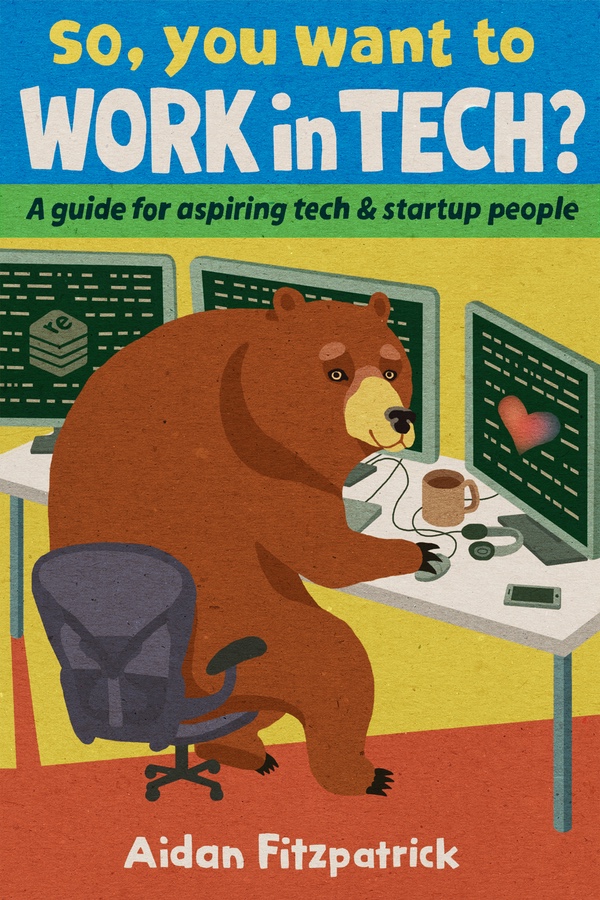How to find and work with a mentor
, 854 words

This article is part of a series of guides related to "So, you want to work in tech?".
A mentor is a trusted, senior individual who can share their experiences with you as you progress in your career. Ideally, they shouldn't have any conflict of interest with regard to what you do, so the CTO at your own company is probably the wrong person. They won't advise you or tell you what to do -- it's your life, after all -- but they will have taken a path that you want to learn from. As such, they'll relate experiences to you that they've had which are relevant to your decision or dilemma.

Mentors can be more helpful than parents, friends, bosses or colleagues, because they are experts in your field and they do not stand to gain if you take a particular decision. They will not have an emotional attachment or preconceived notion about what you should do. They will only know what you tell them about your situation, which puts the onus on you to think carefully about how to brief them.
As well as providing a sounding board for important decisions in your life, a mentor can also help hold you to account. If you share your career or life goals, it provides an opportunity for them to ask you some simple accountability questions. This can be remarkably helpful. Here are some examples:
-
Have you set a deadline for achieving your goal?
-
Have you thought through the steps to achieve the goal?
-
Since we met last month, have you made clear progress in achieving the goal?
-
If not, why not: is it something else is more important? Do you still feel this is the right goal?
-
If you are going to make progress towards this goal in the next month, what is it that you need to do?
-
Would you like me to check in on your progress with these questions next month?
If you are a junior engineer, your mentor might be a senior engineer, a CTO, or a development manager. Being a good mentor takes some skill and practise with people -- not rushing in to provide advice, for instance -- and as such a manager may make a better mentor than an engineer.
Finding a mentor takes initiative. They should be someone who has done what you want to do, which means that it bears thinking about what you want to do. Perhaps you can find them at networking events. Or perhaps you've read their books, or seen them speak at events. Perhaps they are building technology that you think is great.
As far as making the approach goes, being candid is a good policy. Successful people are busy, but the right approach may intrigue and flatter them. Do your homework, and ask if you can buy them coffee for a little of their time, asking for their experience in a particular matter. If you hit it off, and they feel like the right sort of person, there should be no harm in asking straight out.
Preparation and specificity is key. When people approach me to ask for some advice on entrepreneurship over a coffee, I roll my eyes. That is such a broad request; they might want to sap an hour of my time to ramble about anything. If someone has a more focused request -- 20 minutes on what I've seen growing sales as a founder of a IP-based SaaS business -- they are much more likely to succeed.
Here are a few tips I've seen that work for successful pairings:
-
Agree the terms of what you're doing in writing, even if it is just a summary email. This will include the schedule of how frequently you'll meet. Perhaps that's monthly or quarterly.
-
Commit to preparation before the mentoring meeting. If you attend a meeting unprepared it will probably be your last one. It is insulting not to put in the effort to make good use of the time they're giving.
-
Be clear about what is confidential, so that you can be completely honest. If you are not fully honest with your mentor, they will not be able to share their most relevant experiences. If you introduce potentially conflicting dynamics -- like wanting to work for your mentor -- it may encourage you to be less honest about your own performance.
-
There are many better guides online on how to find and work with mentors. Read up!
-
Don't think that a mentor is only useful at the start of your career. The further you go, the more you stand to benefit from this. CEOs have the most and the best mentors.
April 2016 update: This article and some others I've written appear in a short book, "So, you want to work in tech?". The book is available on iTunes (free) and Amazon (paid).
